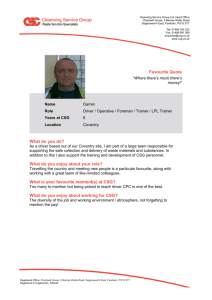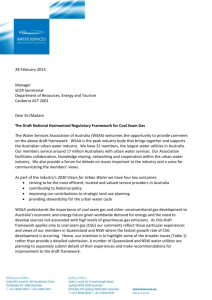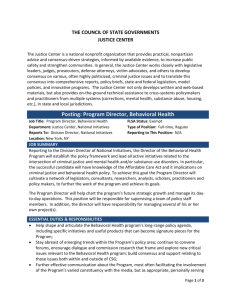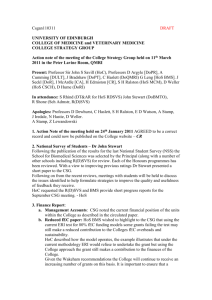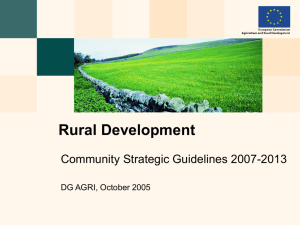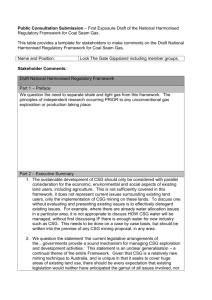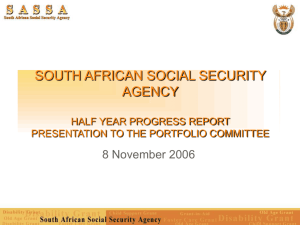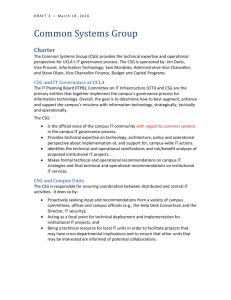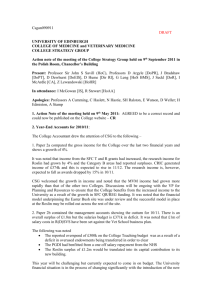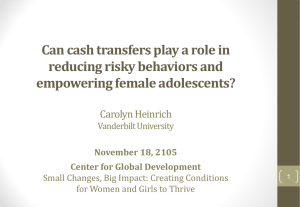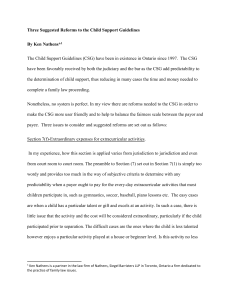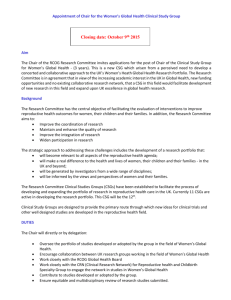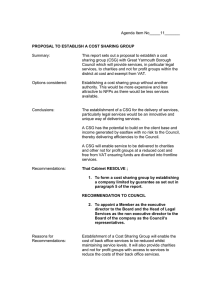Gender Dimensions of Social Investment: Social grants for children
advertisement
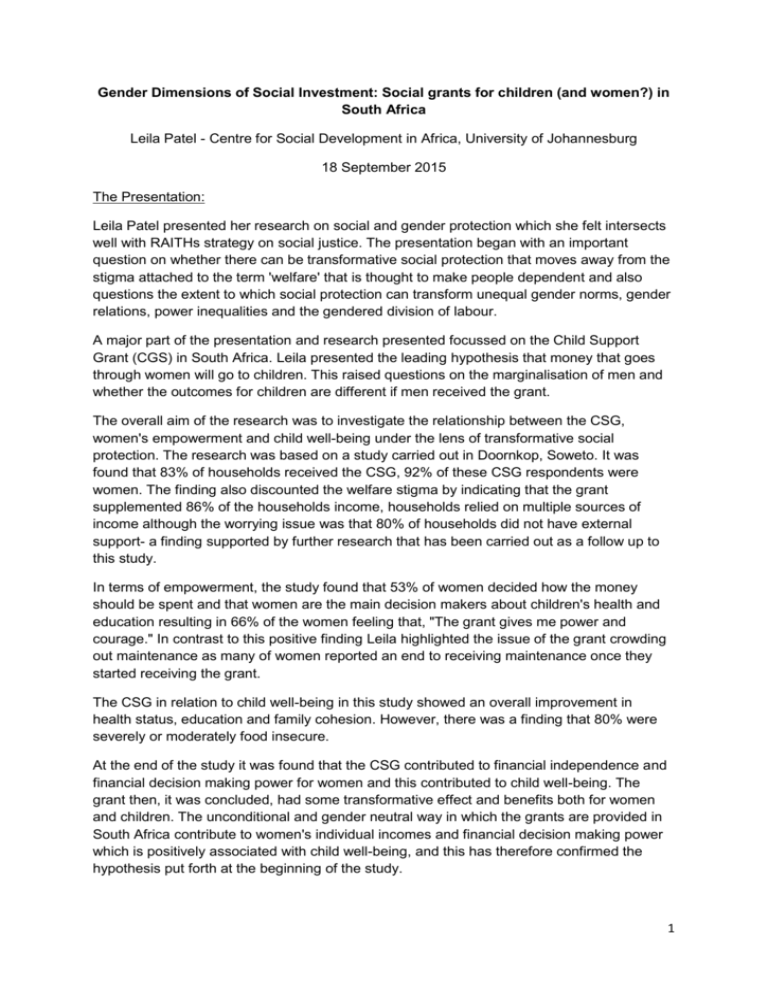
Gender Dimensions of Social Investment: Social grants for children (and women?) in South Africa Leila Patel - Centre for Social Development in Africa, University of Johannesburg 18 September 2015 The Presentation: Leila Patel presented her research on social and gender protection which she felt intersects well with RAITHs strategy on social justice. The presentation began with an important question on whether there can be transformative social protection that moves away from the stigma attached to the term 'welfare' that is thought to make people dependent and also questions the extent to which social protection can transform unequal gender norms, gender relations, power inequalities and the gendered division of labour. A major part of the presentation and research presented focussed on the Child Support Grant (CGS) in South Africa. Leila presented the leading hypothesis that money that goes through women will go to children. This raised questions on the marginalisation of men and whether the outcomes for children are different if men received the grant. The overall aim of the research was to investigate the relationship between the CSG, women's empowerment and child well-being under the lens of transformative social protection. The research was based on a study carried out in Doornkop, Soweto. It was found that 83% of households received the CSG, 92% of these CSG respondents were women. The finding also discounted the welfare stigma by indicating that the grant supplemented 86% of the households income, households relied on multiple sources of income although the worrying issue was that 80% of households did not have external support- a finding supported by further research that has been carried out as a follow up to this study. In terms of empowerment, the study found that 53% of women decided how the money should be spent and that women are the main decision makers about children's health and education resulting in 66% of the women feeling that, "The grant gives me power and courage." In contrast to this positive finding Leila highlighted the issue of the grant crowding out maintenance as many of women reported an end to receiving maintenance once they started receiving the grant. The CSG in relation to child well-being in this study showed an overall improvement in health status, education and family cohesion. However, there was a finding that 80% were severely or moderately food insecure. At the end of the study it was found that the CSG contributed to financial independence and financial decision making power for women and this contributed to child well-being. The grant then, it was concluded, had some transformative effect and benefits both for women and children. The unconditional and gender neutral way in which the grants are provided in South Africa contribute to women's individual incomes and financial decision making power which is positively associated with child well-being, and this has therefore confirmed the hypothesis put forth at the beginning of the study. 1 Discussions and General Issues Raised: A question was raised on the lengths taken to get policymakers to use this research. Leila stated that the problem for policymakers is how to use and implement this research. They have the information but struggle with how to convert it into something concrete. An overall issue was raised on the corruption of SASSA, that even though we see the positive effects of the grant and SASSA delivers and calculates what the loss and leakages are in the system, there is no one watching and following up. The corruption of SASSA's relationship with service providers is important to discuss - many agreed that it is deeply corrupt. There was consensus that this discussion is important because there needs to be caution taken in not messing up a social grant system that works; that is important to people who receive it and for the welfare stability of the country - does this then mean turning a blind eye to the corrupt service providers? There was an interesting discussion on the future of the CSG, with a debate on whether we have reached a ceiling with grants or if there are indeed new directions that can be taken. Leila discussed a problem when it comes to the evolvement of the grant where policy makers adopt a knee jerk reaction of thinking that more money is a solution. As the CSG is institutionalised politically it also becomes difficult to change or take it away. There is another complexity in that the grant can do certain things but has limitations. Other interventions are therefore needed. It is important to find a synergy between the few compelling things that are available that can achieve improvements -the idea of, 'how can you do better with what you've got?' The loss of resources then through corruption needs to be dealt with. There are new directions that can be taken but it requires a capable state and institutions that work and speak to one another. The failure of the system and institutions was also discussed with the example of women/men not aggressively pursuing maintenance. They would rather get a grant and supplement their income than go through incapable and corrupt systems to secure maintenance or other support for which they are qualified. The failure of public service delivery in this way also puts pressure on the grant system, and this comes back to the need for institutions and systems to work well together to help achieve outcomes. The discussion was then concluded with closing views on the limited transformation the CSG has on empowerment of the recipients, which are mostly women. This is due mainly to cultural tendencies resulting in men being marginalised and an increase in gender based violence. It was concluded that it is important to think about this in the work that we carry out. NGOs need to look at the ways in which they operate that could reinforce these tendencies we aim to do good in one area but it could have negative knock on effects in other areas. 2
